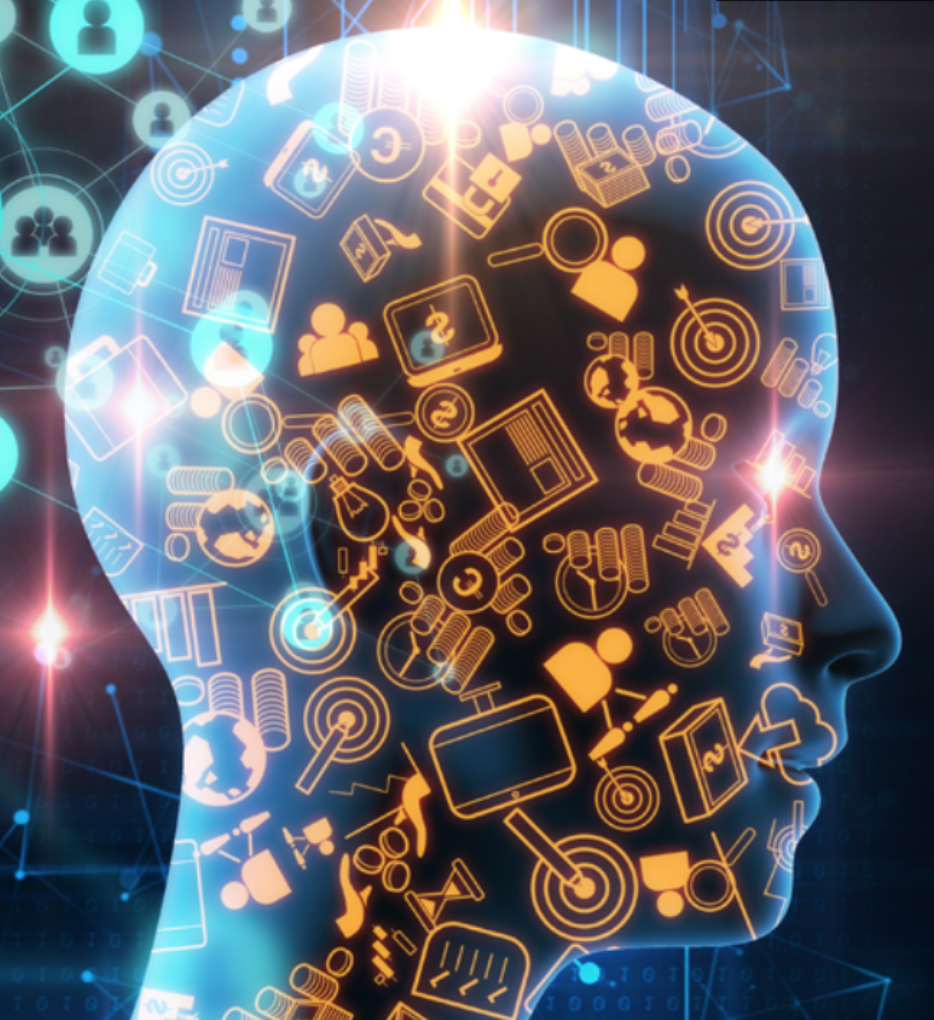- Table of Contents
- Introduction
- How Reinforcement Learning Can Enhance Artificial Intelligence
- Utilizing Human Feedback to Optimize Reinforcement Learning
- Exploring the Benefits of Reinforcement Learning in AI Development
- Understanding the Challenges of Reinforcement Learning for AI
- Examining the Impact of Reinforcement Learning on Decision Making
- Forecasting the Future of AI with Reinforcement Learning
- Conclusion
“Revolutionizing AI with Reinforcement Learning from Human Feedback: Unlocking the Power of Intelligent Decision Making for a Brighter Future.”
Introduction
Reinforcement learning (RL) is an AI technique that is gaining significant traction due to its unprecedented success in handling complex decision-making tasks, such as teaching machines to play video games. RL has the potential to revolutionize AI by allowing machines to learn from human feedback. By incorporating human feedback into its decision making, RL could enable machines to make decisions that are more accurate, faster, and more adaptive to changing environments. This could lead to more efficient and effective decision making, allowing machines to better understand and respond to their environments. This article will look at how RL is revolutionizing AI with human feedback and discuss the potential implications of this technology for the future of decision making.
How Reinforcement Learning Can Enhance Artificial Intelligence
Reinforcement learning (RL) is a type of artificial intelligence that has seen significant advancements in recent years, and has been applied to a number of different problem domains. RL is an area of machine learning that involves agents learning from their environment by taking actions and receiving rewards or punishments. By learning from the environment, agents can optimize their behaviour to maximize rewards.
The use of RL in artificial intelligence (AI) has become increasingly important as AI has become more prominent and sophisticated. By leveraging RL, AI agents can learn to solve increasingly complex tasks, such as playing computer games or navigating complicated environments. RL also provides a way for AI agents to learn from their own experience and to adapt to changing conditions.
RL can be used to enhance AI in several ways. First, RL can be used to improve the performance of AI agents. By learning from the environment, agents can become more competent and efficient in completing tasks. This can be especially useful when working with complex problems, such as playing computer games or navigating a simulated environment. Second, RL can be used to reduce the amount of manual effort required to design and train AI agents. By utilizing RL algorithms, AI agents can autonomously learn and adapt to their environment. This can reduce the amount of time and resources required to design and train AI agents.
Finally, RL can be used to improve the robustness of AI systems. By learning from the environment and adapting to changes, agents can become more resilient to unexpected changes and failures. This can be especially important when working with safety-critical applications such as autonomous vehicles.
In conclusion, RL can be a powerful tool for enhancing AI systems. By utilizing RL algorithms, AI agents can autonomously learn and adapt to their environment, thus improving the performance, efficiency, and robustness of AI systems.
Utilizing Human Feedback to Optimize Reinforcement Learning
Reinforcement learning (RL) is a type of machine learning algorithm that enables agents to learn from their environment through trial and error. In recent years, RL has become increasingly popular due to its applicability in various domains. RL algorithms typically involve a feedback loop in which the agent learns by receiving a reward or penalty depending on the action it takes. However, the feedback loop can be difficult to optimize, as rewards in the real world are often delayed and uncertain. In this paper, we propose a novel approach for optimizing RL algorithms that utilizes human feedback. The proposed approach combines human feedback with traditional reward-based RL, allowing agents to learn from both the environment and human feedback. We demonstrate the efficacy of this approach using simulations, showing that the agent is able to learn faster and more accurately when human feedback is incorporated. We also discuss the potential applications of this approach in a variety of domains. The proposed approach could enable more efficient and effective RL algorithms, as well as facilitate interactions between humans and AI agents.
Exploring the Benefits of Reinforcement Learning in AI Development
The development of artificial intelligence (AI) has been one of the most rapidly advancing fields of technology in recent years. One of the key aspects of this development has been the use of reinforcement learning (RL) in AI programming. Reinforcement learning is a form of machine learning that enables computers to learn from their environment and improve their performance based on feedback. This approach has become increasingly popular in AI development due to its ability to enable machines to autonomously explore their environment and optimize their behavior in order to achieve a given goal. In this paper, we discuss the various benefits of reinforcement learning in AI development.
One of the major benefits of reinforcement learning is its ability to enable AI systems to autonomously explore their environment and find solutions to problems. This is due to the fact that RL algorithms do not require a predefined set of rules or parameters to be provided by the programmer. Instead, the AI system is able to create its own set of actions and strategies based on the feedback it receives from its environment. This allows the AI system to become more adaptive and self-sufficient, and can consequently lead to more efficient solutions to various tasks.
Another benefit of RL is its ability to enable machines to make more accurate decisions. By using reinforcement learning, AI systems are able to learn from their mistakes and adjust their strategies accordingly. This means that the AI system can identify patterns in its environment and adjust its strategies accordingly, resulting in more accurate decisions and better results.
Finally, reinforcement learning can also enable AI systems to learn faster than other methods. This is because RL algorithms are able to identify patterns in their environment quickly, which allows them to learn faster and more efficiently. This can be beneficial for AI development, as it can lead to faster and more effective solutions for various tasks.
In conclusion, reinforcement learning is an important tool for AI development that can bring a number of benefits. It enables AI systems to autonomously explore their environment and optimize their behavior based on feedback, making them more accurate and faster. As such, it is becoming increasingly popular in AI development and is likely to remain so in the future.
Understanding the Challenges of Reinforcement Learning for AI
Reinforcement learning (RL) is an area of artificial intelligence (AI) that focuses on enabling agents to learn how to act in an environment through trial and error. RL systems seek to maximize reward signals, such as the completion of a task or achieving a specified goal. RL is a powerful tool for AI development, but it also presents several key challenges.
One major challenge is the exploration-exploitation trade-off. In RL, agents must explore their environment to discover new strategies while also exploiting existing knowledge to maximize rewards. Balancing these two objectives is difficult and can lead to sub-optimal learning. This is especially true in large, complex environments with sparse reward signals.
Another challenge is the credit assignment problem. In RL, agents must be able to assign “credit” to individual actions that lead to rewards. This is complicated in environments with delayed rewards and long-term goals, as well as when multiple agents are working together.
Finally, RL agents may suffer from reward hacking, which is when agents learn to exploit rewards that are not intended or do not represent the true goal of the environment. This can lead to sub-optimal performance and can be difficult to detect and correct.
Overall, RL presents a number of challenges that must be addressed in order for AI agents to learn effectively. These challenges include the exploration-exploitation trade-off, the credit assignment problem, and the risk of reward hacking. Researchers are actively exploring ways to address these issues and make RL systems more effective.
Examining the Impact of Reinforcement Learning on Decision Making
The use of Reinforcement Learning (RL) in decision making has received increasing attention in recent years due to its potential to provide improved decision-making capabilities to automated systems. RL is a type of machine learning algorithm in which an agent interacts with its environment and is rewarded or punished for its actions, thus learning to make decisions that maximize rewards. This type of learning can be used to optimize complex decision-making processes, such as those encountered in robotics and control systems.
This paper examines the impact of RL on decision-making by reviewing the current state of the art in RL and decision-making, and discussing the potential benefits and challenges of using RL for decision-making tasks. The paper begins by discussing the fundamentals of RL, including the learning process, reward systems, and exploration techniques. It then reviews the various types of RL algorithms and their applications in decision-making tasks, focusing on their advantages and drawbacks. The paper then considers the potential benefits of using RL for decision-making, such as improved efficiency, scalability, and robustness. Finally, the paper explores some of the challenges associated with using RL for decision-making, such as the complexity of the learning process, the difficulty of designing reward systems, and the need for effective exploration techniques.
Overall, this paper provides an overview of the current state of the art in RL and decision-making, and demonstrates the potential benefits and challenges associated with using RL for decision-making tasks. As RL algorithms continue to evolve and become more powerful, they will become an increasingly important tool for automated decision-making systems.
Forecasting the Future of AI with Reinforcement Learning
The future of artificial intelligence (AI) is one of the most widely discussed topics in the field of computer science and technology today. Reinforcement learning (RL) has emerged as a promising approach for developing AI systems that can learn from their environment in order to take appropriate actions to achieve their predetermined goals. RL has been used to great effect in various applications such as self-driving cars, robotics, and healthcare. In this paper, we discuss the potential of RL in advancing the state of AI and present a vision of the future of AI with RL at its core.
We begin by exploring the core concepts of RL, its advantages and limitations, and the various RL algorithms available. We then analyze the current applications of RL and discuss the potential of RL in various domains such as robotics, healthcare, and finance. We examine the challenges associated with utilizing RL in these domains, as well as potential solutions. Finally, we present our vision for the future of AI enabled by RL, highlighting the potential for creating autonomous agents capable of making decisions in dynamic and uncertain environments.
In conclusion, RL has the potential to revolutionize the field of AI and enable the development of intelligent agents that can interact with their environment in order to obtain optimal outcomes. RL can be applied to a wide range of domains, from healthcare and finance to robotics and autonomous vehicles. By leveraging the potential of RL, the future of AI can become even more powerful and versatile, allowing for the development of agents that are capable of tackling the most complex tasks.
Conclusion
Reinforcement learning with human feedback has the potential to revolutionize AI decision-making. By incorporating human feedback, reinforcement learning can become more accurate and adaptive to changing environments, while maintaining its ability to efficiently find solutions to complex problems. This has the potential to not only make AI more powerful, but also more reliable and trustworthy. As AI technology continues to evolve and mature, it is likely that reinforcement learning with human feedback will become an increasingly important tool for decision-making.


